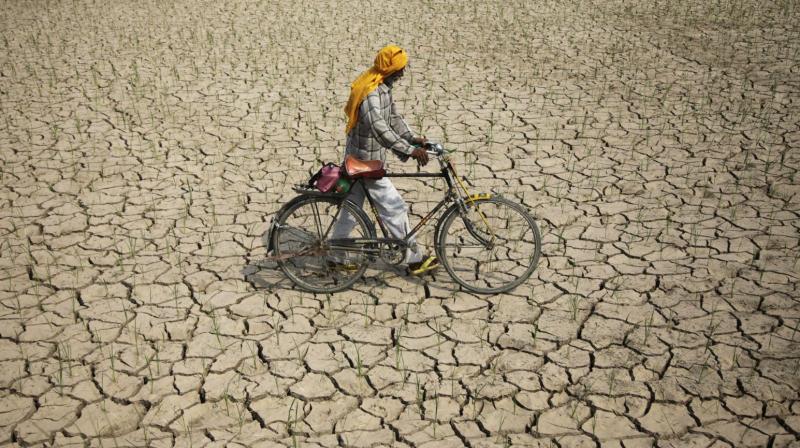Drought does not stop borewell spree in Alappuzha
The nodal agency for monitoring and management has of late patronised the exploitation in the district.

Alappuzha: Digging borewells by the groundwater department and private contractors continue as the state lacks proper regulation to prevent depletion of water tables despite drought. The nodal agency for monitoring and management has of late patronised the exploitation in the district.
They have works of 25 tube wells and 28 borewells pending in different parts here. They have dug 306 tube wells, and 76 borewells for the public and 86 filter tubes for domestic purposes, charging Rs 4 lakh a well.
They are digging a 350-metre deep tube well at Kurakkavu Devi Temple, Krishnapuram, now. Though the gram panchayat administration served a stop memo, its work is still underway.
Over 20,000 devotees used to attend a special Kaarya Siddhi Puja every fortnight here, and the temple would draw vast quantities of water depleting water level in surrounding areas.
R. Udayakumar, an official of the department, said the number of such deep wells dug by private contractors could be double. "If there is no ap-proval from local governments, we will not execute works till this month end as there is a standing order. After that we will continue our works," he said.
"People have of late become sceptical of drying up of wells in surrounding areas. But they have nothing to do with the surface water. If any drying up takes place, it can be resolved with recharging."
The government had in February entrusted district collectors to regulate them under the Disaster Management Act, on the recommendations of the groundwater department.
On Wednesday, district collector Veena N. Madhavan sought a report from them on digging tube well on the temple premise. Dr P.R. Arun of Centre for Water Resources Development and Management (CWRDM), Kunnamangalam, said the indiscriminate drawing of groundwater could result in drying up of streams and lakes as well, apart from causing pollution. "It would destroy the equilibrium of the ecosystem," he said.
"It could not sometimes be in nearest places, but faraway areas. The iron content and bacteriological contamination are high in tube/bore well water. Ferrous sulphate is unstable and precipitates as insoluble ferric hydroxide, which settles out as rust coloured silt. Water gets a bad taste and odour. It is unpalatable, even at low concentration (0.3mg/litre). Excess iron promotes the growth of iron bacteria, and they deposit slimy coating."
The CWRDM had classified 152 block panchayats in Kerala as 'semi-critical'. K.S. Madhu, director of the groundwater department, said they were getting complaints of officials taking advantage of the drought situation.

